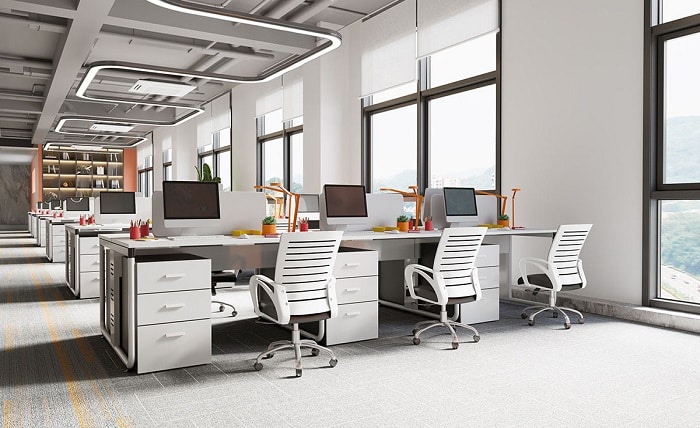Office furnishing is one of the most important factors that characterize both the looks of the office as well as its usability in a given working place. It is necessary to make your workplace look as beautiful as it is comfortable due to the fact that aesthetic and ergonomic values matter in some way.
Ergonomic furniture is designed and shaped to match the human body and ensures that the worker maintains the right posture during work thus reducing pressure placed on the bones and muscles. But, the look or esthetic value of the furniture has a huge say with regards to how people feel about the workplace.
It must be understood that having a well-designed office can greatly assist in increasing the motivation of the workers and at the same time also influences the clients positively. The question therefore arises of how to take these two factors into consideration; one factor should not compromise the other factor.
The Importance of Ergonomics
Ergonomic furniture is designed based on the physical requirements of the people who will be using the furniture. This implies chairs that are of height adjustable to suit the user’s height, backrests that offer support and tables that provide sufficient space for the legs. Since discomfort and chances of accidents are minimized, ergonomic furniture improves concentration and productivity.
But ergonomics is not only about comfort. It’s scientifically constructed based on information about people’s bodies and actions. This type of furniture design ensures that when people are at work for long hours they are not harmed by the furniture they are using.
Aesthetics Matter Too
Aesthetics matter when selecting commercial office furniture because the choice of designs and styles of office furniture affect the feel and attitude of people towards the workplace environment. Sleek and modern furniture bring a sense of business-like efficiency and technological advancement, while traditional styles can bring an air of reliability and experience.
Color, shape, and material are all part of aesthetics. All these elements should symbolize the company and the values it holds dear. For instance, a creative agency might use bright colors and graphic designs to inspire creativity and portray its activity.
Merging Aesthetics With Ergonomics When Selecting Commercial Office Furniture
Ideally, ergonomic principles should work in harmony with aesthetic features in the best office furniture designs. For example, an ergonomic chair that can be adjusted and has back support does not mean that it cannot look fashionable and can not be in a color that matches the businesses theme.
Take, for example, an office chair with a mesh back for ventilation and a sleek design complemented by smooth curves. In the same manner, some tables with height control mechanisms that are simple to operate can be made with beautiful exteriors and slim shapes that fit any office setting. Waiting room chairs with stretchable and breathable fabric and memory foam will serve both aspects of the chair: aesthetics and functionality.
Conclusion
Achieving harmony between aesthetic appeal and usability should be the key when picking out commercial office furniture. By focusing on the furniture that meets both of these needs, you will be able to contribute to creating a work environment which will positively impact the performance and health of the employees, as well as elevate the first impression of the company to the visitors.

